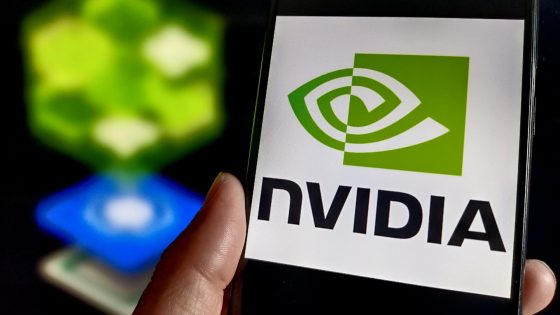Nvidia may be at the forefront of artificial intelligence innovation, but other companies look poised to ride its coattails. Shares of the chip giant pulled back about 2% during Tuesday’s session after announcing its latest AI chips . That, however, didn’t stop some Wall Street analysts from upping their price targets on the stock, which is up more than 75% this year, and retaining their bullish stance. NVDA YTD mountain Nvidia shares in 2024 “With leading silicon (GPU/DPU/CPU), hardware/software platforms, and a strong ecosystem, NVIDIA is well positioned to continue to benefit from major secular trends in AI, high-performance computing, gaming, and autonomous vehicles, in our view,” said JPMorgan analyst Harlan Sur. “Bottom line: NVIDIA continues to be 1-2 steps ahead of its competitors.” While Nvidia’s latest announcements solidify the company’s AI leadership, Wall Street anticipates some positive tailwinds for a slew of derivative players. Here’s what the latest Blackwell chips could mean for key players and industry competitors according to Wall Street. Semiconductor derivative plays Nvidia’s latest announcements could pose some major tailwinds for companies operating within the chipmaker’s ecosystem. Blackwell’s higher bandwidth memory needs, for example, could prove a major boon for dynamic random access memory chipmakers such as Micron Technology , according to Rosenblatt analyst Hans Mosesmann and Goldman Sachs analyst Toshiya Hari. “DRAM density continues to lift with the B100 and B200 each including 192 GB of [high bandwidth memory] (up from the H100’s 80 GB),” said Wedbush’s Matt Bryson in a Tuesday note. “Again we see this increase as positive for DRAM vendors (in light of premium pricing and margins for HBM) as well as the broader memory complex.” MU YTD mountain Micron shares year to date Another clear winner from Blackwell’s debut is Taiwan Semiconductor , since the latest chips harness the company’s 4-nanometer process technology. Citi’s Laura Chen reiterated the firm’s constructive view on the company following the keynote, noting that its close ties to Nvidia in chip design and advanced node manufacturing could more than double the company’s AI revenues in 2024. Wall Street also views Marvell Technology as a potential big winner from data center AI growth, with Bank of America anticipating an opportunity for the company in optical transceivers. “We believe MRVL’s growth story remains unchanged and should benefit from the ongoing transition to 800 [gigabits per second],” wrote Oppenheimer analyst Rick Schafer. The stock sank more than 4% during Tuesday’s session but has added more than 6% this year. Liquid cooling The liquid cooling industry may also benefit as Nvidia harnesses the technology to cool the 72 Blackwell graphics processing units in its new server rack system, known as GB200 NVL72. One potential winner on that front is red-hot AI stock Super Micro Computer , up more than 829% over the past year, according to Mosesmann. VRT 1Y mountain Vertiv shares over the last year Evercore ISI analyst Amit Daryanani also highlighted Vertiv as a potential liquid cooling winner, calling the company the “best positioned” to prosper off AI growth due in part to its large-scale, hyperscale-driven contracts and dominant position within power and thermal management. “We believe built-in liquid cooling capabilities in addition to the power density of the system should be a positive for VRT’s liquid cooling and power management businesses,” he wrote. Vertiv shares have rallied about 53% this year and 459% over the past year. Headwinds to competitors Not every company is poised to benefit from Nvidia’s Blackwell chips and their growth potential. One potential loser is Advanced Micro Devices . AMD YTD mountain AMD’s 2024 stock performance “In our view, AMD needs to keep up with Nvidia’s innovation cycle for it to maintain/extend share in the Data Center accelerator market,” said Goldman Sachs’ Hari. While industry checks indicate the company is experiencing strong demand in the near term for its MI300 data center GPUs, Nvidia’s quick innovation cycle could pose some headwinds. Hari views Intel as potentially being in deeper trouble, as companies shift toward accelerated computing and divert spending from “general-purpose” data centers. The stock slumped more than 2% during Tuesday’s session and is down 17% this year.
Source Agencies


